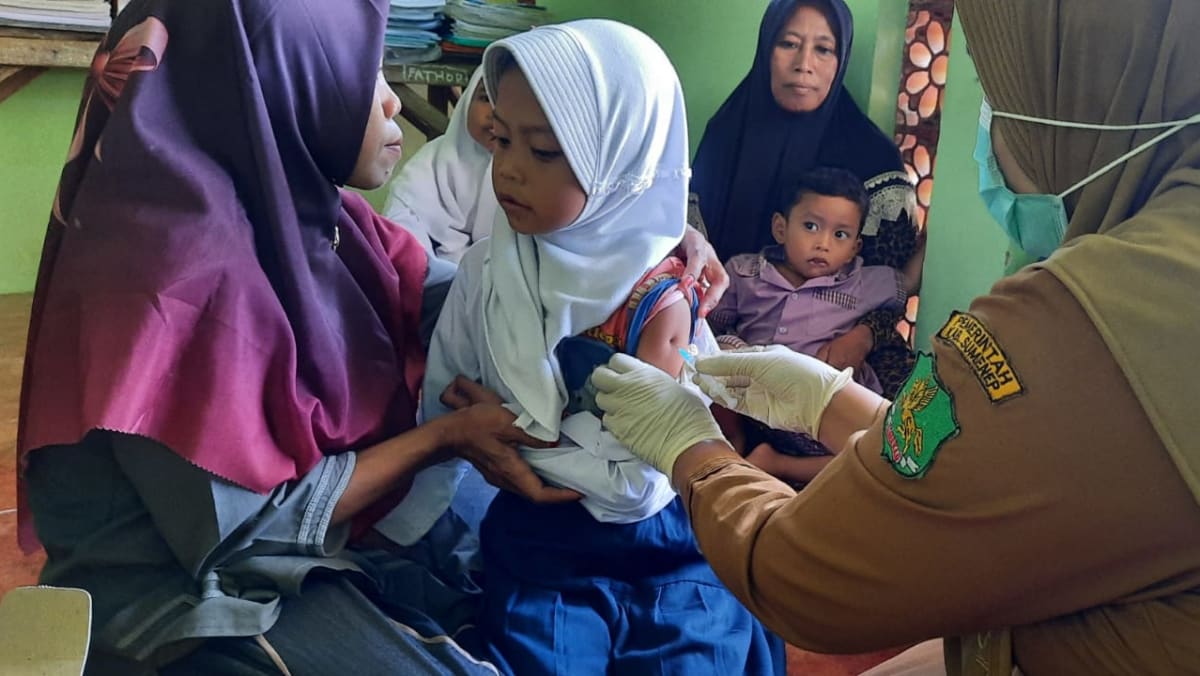JAKARTA: Every time a free school vaccination drive is held, Benzema (not his real name) would keep his children at home. Sometimes the excuse is illness, but the underlying reason is always the same: distrust.
The 40-year-old small business owner from Bekasi, West Java, believes vaccines actually weaken the body’s immunity.
“None of my eight kids has been vaccinated since they were babies,” he told CNA, adding that he has done extensive read-ups about vaccines.
Health workers and experts warn that such attitudes have contributed to a steady decline in vaccine coverage in Indonesia — opening the door to the resurgence of vaccine-preventable diseases.
Over the past few weeks, Indonesia has recorded dozens of measles outbreaks.
One of the worst-hit areas is Sumenep in Madura Island, East Java, which has recorded more than 2,000 suspected infections and deaths of 17 children. The other two hotspots besides Sumenep are Medan (351 suspected cases) and Deli Serdang (154), both in North Sumatra province.
Authorities say reluctance to participate in vaccination programmes is the leading cause. In response, health officials launched a mass immunisation campaign, known as Outbreak Response Immunization (ORI), which runs from Aug 25 to Sep 6 in Sumenep.
Ellya Fardasah, Head of the Sumenep Health, Population Control and Family Planning Office (Dinkes P2KB), told CNA that vaccines will be administered to 78,569 children aged nine months to seven years.
“Our target is 95 per cent of that figure, which amounts to 70,271 children. The daily goal is 4.8 per cent or 3,346 children within that age range,” Ellya said.
But experts believe that sustainable progress in vaccination coverage requires more than campaigns — it demands community-based education, particularly from religious leaders, to counter disinformation and to convince families that vaccines are vital to children’s safety.
